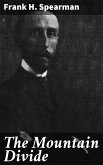In "The Later Life," Louis Couperus deftly navigates the intricate dynamics of human relationships, illuminating the complexities of love, loss, and identity. Written in a lyrical style that seamlessly blends impressionistic prose with psychological insight, the novel captures the existential dilemmas faced by its characters as they confront the passage of time and their evolving desires. Set against the backdrop of late 19th-century Dutch society, Couperus's exploration of societal expectations and individual aspirations provides a rich context for understanding the motivations that drive his characters into moral ambiguity and self-reflection. Louis Couperus, a prominent figure in Dutch literature, was known for his modernist approach and his keen observations of the human psyche. The themes in "The Later Life" reflect Couperus's own experiences with the intersection of personal anguish and philosophical inquiry, shaped by his upbringing in a well-to-do family and his exposure to both local and international literary movements. His deep understanding of the human condition allows him to portray the nuances of emotional struggle with exceptional empathy and realism. This remarkable novel is recommended for readers who appreciate literature that probes the depths of the human experience. Couperus's insightful critique of social mores, combined with his evocative prose, makes "The Later Life" a compelling examination of the intricacies of love and aging. It is an essential read for those interested in exploring the psychological dimensions of literature within the context of early modernism.
Dieser Download kann aus rechtlichen Gründen nur mit Rechnungsadresse in A, B, BG, CY, CZ, D, DK, EW, E, FIN, F, GR, H, IRL, I, LT, L, LR, M, NL, PL, P, R, S, SLO, SK ausgeliefert werden.









